Clark
-
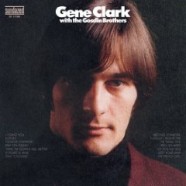 With The Gosdin Brothers
With The Gosdin Brothers
1967 -
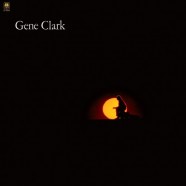 White Light
White Light
1971 -
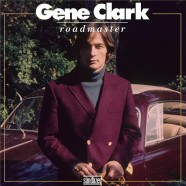 Collector΄s Series: Early L.A. Sessions
Collector΄s Series: Early L.A. Sessions
1972 -
 Roadmaster
Roadmaster
1973 -
 No Other
No Other
1974 -
 In The Pines
In The Pines
1975 -
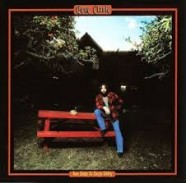 Two Sides To Every Story
Two Sides To Every Story
1977 -
 Back Street Mirror
Back Street Mirror
1978 -
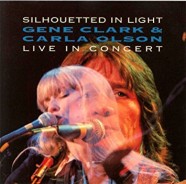 Won΄t Let You Down
Won΄t Let You Down
1979 -
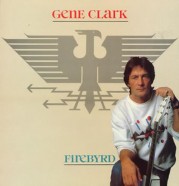 Firebyrd
Firebyrd
1984 -
 So Rebellious A Lover
So Rebellious A Lover
1987
Gene Clark - With Tomorrow / 1971
| Adaugat de matusa | 14.10.2011 |  Adauga
la favorite Adauga
la favorite |
1.670 vizualizari Nota film: 0 / 5 (0 voturi ) |
|||||||||
Gene Clark - With Tomorrow / 1971
Versuri/ text:
It was more like a dream than reality
I must have thought it was a dream while she was here with me
When she was near I didn`t think she would leave
When she was gone it was too much to believe
So with tomorrow I will borrow
Another moment of joy and sorrow
And another dream and another with tomorrow
So if there some day won`t be time just to look behind
There won`t be reasons, no descriptions for my place and mind
There was so much I was told that was not real
So many things that I could not taste but I could feel
So with tomorrow I will borrow
Another moment of joy and sorrow
And another dream and another with tomorrow
Gene Clark will always be best remembered for his two-year stint as a vocalist with the Byrds between 1964 and 1966. A fine legacy to be sure, but the shame of it is that there was far more to Clark's body of work than that; he was a superb songwriter, one of the founding fathers of country-rock, and recorded a number of fine albums with an impressive array of collaborators whose quality far outstripped their modest sales figures.
Gene Clark was born in Tipton, MO, in 1944. Clark's father was an amateur musician with a passion for country music which rubbed off on young Gene; he began learning the guitar at age nine and was soon picking out Hank Williams tunes, as well as material by early rockers such as Elvis Presley and the Everly Brothers. Before long, Clark started writing his own songs, and at 13, he cut his first record with a local rock & roll combo, Joe Meyers and the Sharks, but Clark developed an interest in folk music after the Kingston Trio rose to popularity. Clark began performing with several folk groups working out of Kansas City which led to a more lucrative position with the New Christy Minstrels, a well-scrubbed folk-pop ensemble who scored a hit single with "Green Green." However, Clark longed to perform his own songs and didn't care for life on the road; after hearing the Beatles for the first time, Clark decided he wanted to form a rock band and he quit the NCM and moved to Los Angeles. There, he met a fellow folky who had his head turned around by the Beatles, Jim McGuinn (he would later change his name to Roger) and in 1964 they started assembling a band that would, in time, come to be known as the Byrds.
Gene Clark quickly became the Byrds' dominant songwriter, penning most of their best-known originals, including "Feel a Whole Lot Better," "Here Without You," and "Eight Miles High," and was one of the group's strongest vocal presences. However, Clark's less-than-impressive skills as a guitarist often made him look like a backing vocalist on-stage and the combination of Clark's dislike of traveling (including a fear of flying) and resentment that his songwriting income made him the best-paid member of the group led to tensions within the Byrds, and in 1966, Clark opted to leave the group. Columbia Records, the label the Byrds recorded for, signed Clark as a solo artist, and in 1967, he released his first solo set, Gene Clark With the Gosdin Brothers, a pioneering fusion of country and rock. However, Clark's album was released almost simultaneously with the Byrds' Younger Than Yesterday, and Clark's set was a commercial bust. With the future of his solo career in doubt, Clark briefly rejoined the Byrds in 1967, but by the end of the year, he once again parted ways with the group.
In 1968, Clark signed with A&M Records and, once again following his interest in blending country with rock, he began a collaboration with virtuoso multi-instrumentalist Doug Dillard. Dillard & Clark recorded a pair of fine albums for A&M, but they fared no better at the marketplace than Clark's efforts with the Gosdin Brothers, and in 1969, Clark began work on his first proper solo album, recording a pair of tracks with several members of the Byrds. However, legal problems prevented their release at the time, and it wasn't until 1971 that a Gene Clark solo set finally emerged, entitled White Light. A strong, primarily acoustic set, White Light sold poorly in America but was an unexpected hit in the Netherlands. Clark's next album, Roadmaster, combined new material with the unreleased 1969 tracks cut with the Byrds; while it was a strong album, A&M chose not to release it and it was initially released only in Holland. Clark left A&M just in time for the Byrds to cut a reunion album with their original lineup; Clark contributed a pair of fine songs to the project, "Full Circle" and "Changing Heart," but most of the album sounded uninspired and the reunion quickly splintered
Versuri/ text:
It was more like a dream than reality
I must have thought it was a dream while she was here with me
When she was near I didn`t think she would leave
When she was gone it was too much to believe
So with tomorrow I will borrow
Another moment of joy and sorrow
And another dream and another with tomorrow
So if there some day won`t be time just to look behind
There won`t be reasons, no descriptions for my place and mind
There was so much I was told that was not real
So many things that I could not taste but I could feel
So with tomorrow I will borrow
Another moment of joy and sorrow
And another dream and another with tomorrow
Gene Clark will always be best remembered for his two-year stint as a vocalist with the Byrds between 1964 and 1966. A fine legacy to be sure, but the shame of it is that there was far more to Clark's body of work than that; he was a superb songwriter, one of the founding fathers of country-rock, and recorded a number of fine albums with an impressive array of collaborators whose quality far outstripped their modest sales figures.
Gene Clark was born in Tipton, MO, in 1944. Clark's father was an amateur musician with a passion for country music which rubbed off on young Gene; he began learning the guitar at age nine and was soon picking out Hank Williams tunes, as well as material by early rockers such as Elvis Presley and the Everly Brothers. Before long, Clark started writing his own songs, and at 13, he cut his first record with a local rock & roll combo, Joe Meyers and the Sharks, but Clark developed an interest in folk music after the Kingston Trio rose to popularity. Clark began performing with several folk groups working out of Kansas City which led to a more lucrative position with the New Christy Minstrels, a well-scrubbed folk-pop ensemble who scored a hit single with "Green Green." However, Clark longed to perform his own songs and didn't care for life on the road; after hearing the Beatles for the first time, Clark decided he wanted to form a rock band and he quit the NCM and moved to Los Angeles. There, he met a fellow folky who had his head turned around by the Beatles, Jim McGuinn (he would later change his name to Roger) and in 1964 they started assembling a band that would, in time, come to be known as the Byrds.
Gene Clark quickly became the Byrds' dominant songwriter, penning most of their best-known originals, including "Feel a Whole Lot Better," "Here Without You," and "Eight Miles High," and was one of the group's strongest vocal presences. However, Clark's less-than-impressive skills as a guitarist often made him look like a backing vocalist on-stage and the combination of Clark's dislike of traveling (including a fear of flying) and resentment that his songwriting income made him the best-paid member of the group led to tensions within the Byrds, and in 1966, Clark opted to leave the group. Columbia Records, the label the Byrds recorded for, signed Clark as a solo artist, and in 1967, he released his first solo set, Gene Clark With the Gosdin Brothers, a pioneering fusion of country and rock. However, Clark's album was released almost simultaneously with the Byrds' Younger Than Yesterday, and Clark's set was a commercial bust. With the future of his solo career in doubt, Clark briefly rejoined the Byrds in 1967, but by the end of the year, he once again parted ways with the group.
In 1968, Clark signed with A&M Records and, once again following his interest in blending country with rock, he began a collaboration with virtuoso multi-instrumentalist Doug Dillard. Dillard & Clark recorded a pair of fine albums for A&M, but they fared no better at the marketplace than Clark's efforts with the Gosdin Brothers, and in 1969, Clark began work on his first proper solo album, recording a pair of tracks with several members of the Byrds. However, legal problems prevented their release at the time, and it wasn't until 1971 that a Gene Clark solo set finally emerged, entitled White Light. A strong, primarily acoustic set, White Light sold poorly in America but was an unexpected hit in the Netherlands. Clark's next album, Roadmaster, combined new material with the unreleased 1969 tracks cut with the Byrds; while it was a strong album, A&M chose not to release it and it was initially released only in Holland. Clark left A&M just in time for the Byrds to cut a reunion album with their original lineup; Clark contributed a pair of fine songs to the project, "Full Circle" and "Changing Heart," but most of the album sounded uninspired and the reunion quickly splintered
Semnaleaza o problema
Afiseaza playlist (total video: 0)
Prin utilizarea serviciilor noastre, iti exprimi acordul cu privire la faptul ca folosim module cookie in vederea analizarii traficului si a furnizarii de publicitate.


























 Sterge
din favorite
Sterge
din favorite